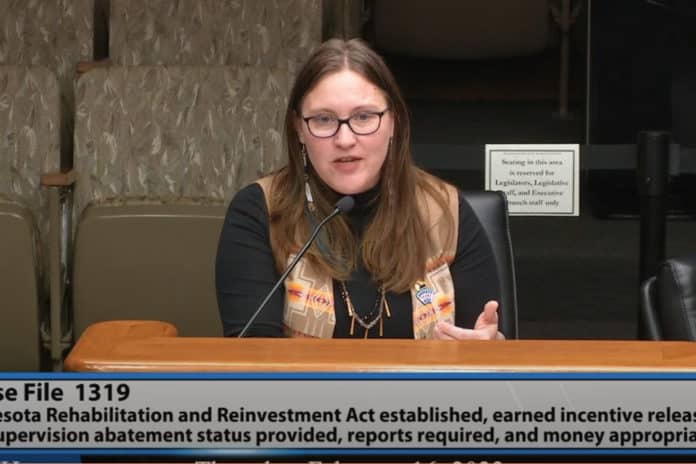
Minnesota Democrats have introduced a bill that would allow inmates to earn early release credits, an idea that Commissioner of Corrections Paul Schnell called a “game-changing proposition.”
Authored by Rep. Jamie Becker-Finn, DFL-Roseville, the Minnesota Rehabilitation and Reinvestment Act (MRRA) seeks to incentivize participation in rehabilitation programming by offering early release credits.
“If we look at recidivism rates, we know that the current system isn’t working,” Becker-Finn said during a House Public Safety Committee meeting last week, calling the bill a “big change” to the corrections system.
Schnell, a Walz appointee who supports the bill, explained the four components of the legislation:
- Individualized rehabilitation plans: Each inmate would receive a “robust assessment that is used to set concrete, personalized goals.”
- Earned incentive release: Earlier release could be earned by participating in the programs laid out in the individualized rehabilitation plan, such as mental health or substance abuse treatment and skills training.
- Earned supervision abatement: The length of probation or parole also could be shortened if “further goals are met.”
- Justice reinvestment fund: The savings from the act would be reinvested in victim services, supervision services, and crime prevention programs.
“What this bill would do is really recognize that each individual person might need something different so that they can thrive when they come back to our communities,” Becker-Finn said.
Under the current system, people serve two-thirds of their sentence in prison and the remaining third on supervised release. The MRRA could let prisoners out as early as the 50% mark as long as the individualized rehabilitation plan is followed, Schnell said.
The legislation directs the commissioner to develop a policy on “earned incentive release” in consultation with local boards and community groups. The bill states that “the maximum amount of earned incentive release credit that can be earned and subtracted from the term of imprisonment is 17 percent of the term of imprisonment, but in no case shall the credit reduce the term of imprisonment to less than one-half of the incarcerated person’s executed sentence.”
The legislation wouldn’t apply to those serving life sentences.
“We are in the business of trying to transform lives and that is fundamentally focused on the safety of our state,” Schnell said. “Accountability without rehabilitation is a failed proposition.”
The bill was referred to the House Ways and Means Committee for a second hearing.









